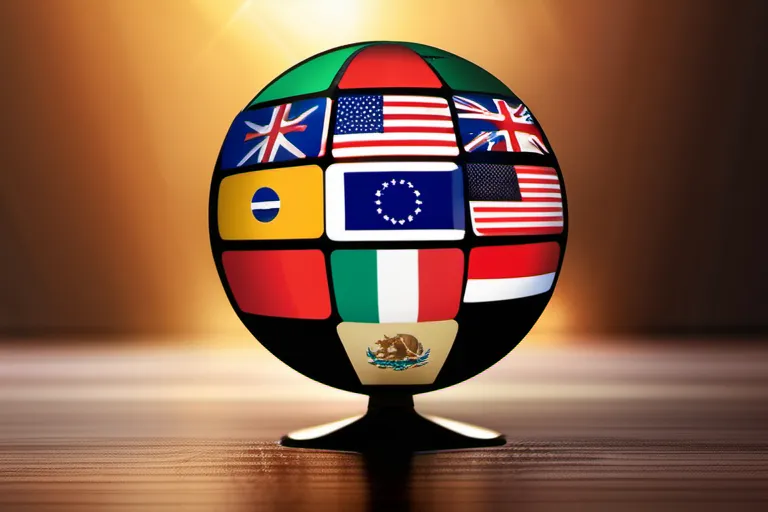Exploring the origins, principles, and importance of secularism in modern societies
Secularism, a fundamental concept shaping modern societies, is more than just the absence of religion. This article dives deep into its history, principles, and impact on governance and society.
The Roots of Secularism
Secularism, like many profound ideas, has roots that stretch back through time and across continents. But where did it all begin? Was secularism always about keeping religion out of public life, or is there more to its story?
Imagine a society where the ruler’s divine right to rule was unquestioned. Every aspect of daily life—laws, education, and culture—was intertwined with religious beliefs. This was not just Europe in the Middle Ages; this was any place where political power and spiritual authority were one and the same.
How did we get from there to a society that values the separation of church and state? The journey begins with thinkers who questioned the absolute power of religious institutions. Figures like Thomas Aquinas in the 13th century started laying groundwork by arguing for a balance between faith and reason. Yet, it was during the Renaissance, with its emphasis on humanism and individual rights, that secularism began to take shape more clearly.
The Enlightenment further propelled this movement, as philosophers like Jean-Jacques Rousseau and John Locke championed the idea of separating government from religious influence. They argued for a society where individuals could freely choose their beliefs without interference from authorities. This concept was crystallized in the US Constitution’s First Amendment, which protects freedom of religion and ensures that the government cannot establish an official church.
As we trace these historical roots, it’s clear that secularism is not just about removing religion; it’s about ensuring a space where all beliefs can coexist freely. This chapter sets the stage for our next exploration: understanding what exactly secularism means beyond its surface-level definition.
Do you wonder how these ideas have evolved into modern practices? Stay with us as we delve deeper into defining secularism and dispelling common misconceptions.
Defining Secularism: More Than Absence of Religion
Understanding Secularism: A Comprehensive Guide delves into the complex and often misunderstood concept of secularism. Many people assume that secularism simply means the absence of religion in public life, but this definition is far too simplistic. Is it not true that religion plays a significant role in shaping our societies, cultures, and values? How can we truly grasp the essence of secularism without addressing its deeper implications?
Secularism goes beyond merely separating church and state; it is about ensuring equal respect for all beliefs—or lack thereof. Imagine a society where everyone’s beliefs are treated with the same dignity and respect, regardless of whether they believe in a deity or follow no religion at all. This is the heart of secularism—creating an inclusive space where individuals can freely express their thoughts without fear of discrimination or marginalization.
It is crucial to recognize that secularism does not aim to suppress religious expression but rather to protect it by ensuring no single religion has undue influence over public policy or societal norms. Think about it this way: just as a rainforest thrives with diverse species, a society benefits from the rich tapestry of different beliefs and ideas. How can we foster such diversity without compromising individual freedoms?
Moreover, secularism is essential for promoting social cohesion in multicultural societies. In a world where people come from various backgrounds, religious or otherwise, secularism provides a common ground that allows everyone to participate equally in the democratic process. It acts as a bridge between different communities, ensuring that no group feels excluded because of their beliefs.
In essence, understanding secularism is about recognizing its broader goals and principles. It’s not just about avoiding religious conflicts; it’s about building societies where every individual can thrive regardless of their faith—or lack thereof. How can we strive for a more inclusive and equitable society without the guiding light of secularism?
Principles of Secularism
Now that we have established what secularism truly means—more than just the absence of religion—it’s time to delve into its core principles. These principles form the bedrock upon which a truly secular society is built, much like the foundation supports a sturdy house.
One of the most fundamental principles of secularism is neutrality. This means that the government and public institutions should remain impartial towards religious beliefs and practices. Just as a judge remains neutral in a courtroom to ensure justice for all parties, so too must state bodies operate without favoring one religion over another.
Another key principle is freedom of belief. In a secular society, individuals have the right to choose their own beliefs or lack thereof. This freedom ensures that no one feels coerced into adopting a particular religious stance, allowing for personal autonomy and dignity.
The concept of equality before the law is also integral. Laws should apply uniformly to all citizens, regardless of their religious affiliations. Imagine a seesaw; if it’s balanced, everyone gets an equal share of freedom and protection under the law. In a secular society, this balance ensures that no one’s rights are unduly favored or marginalized based on their religion.
Lastly, separation of church and state is another cornerstone. This principle prevents religious institutions from influencing government policies and vice versa. It’s akin to keeping your personal life separate from your professional one; just as you wouldn’t bring work issues into a family setting, so too should the influence of religion not dictate governmental decisions.
Understanding these principles helps us appreciate how secularism fosters a society where diversity is celebrated, and all individuals can coexist peacefully. By adhering to these principles, we build a framework that supports freedom, equality, and mutual respect among citizens of different beliefs.
Secularism in Governance: Separation of Church and State
Secularism in Governance: Separation of Church and State
Imagine walking down a busy street where everyone seems to have their own rules, beliefs, and ways of living. In such a diverse society, how do we ensure that our laws are fair and just for all? This is where the concept of secularism in governance steps into play, ensuring that religion does not dictate government policies or laws.
Secularism demands that the state should be neutral towards religious beliefs. It’s like building a house with a solid foundation; if the foundation is weak, the whole structure can collapse. In this case, the ‘house’ represents the state and its ability to make impartial decisions. By separating church from state, we create an environment where every individual has equal rights under the law, regardless of their religious or non-religious beliefs.
But why is this separation so crucial? Isn’t religion a fundamental part of many cultures? Indeed it is, but when religion intersects with governance, it can lead to conflicts and injustices. Think about it: if government policies are influenced by one religion over another, who decides which religion gets preference? And what happens to those who follow a different path or no path at all?
Historically, the struggle for separation of church and state has been fought fiercely. Countries like France took significant steps with their Décret du 9 décembre 1790, ensuring freedom from religious interference in governance. In the United States, the First Amendment to the Constitution explicitly separates religion from government.
When we embrace secularism, we pave the way for a more inclusive and equitable society. It’s akin to planting seeds of tolerance and understanding; each seed grows into a tree that provides shelter for everyone. By keeping religion out of state affairs, we ensure that laws are made based on reason and evidence rather than dogma.
So, as we navigate the complexities of modern governance, let us remember: secularism is not about diminishing religious influence but ensuring that all voices are heard equally. It’s a delicate balance that keeps our democratic institutions strong and resilient.
The Impact of Secularism on Society
Secularism, like a gentle breeze that shapes the landscape without leaving a trace, has quietly transformed societies around the world. How does this invisible force impact our daily lives and shape the fabric of modern communities? Is secularism merely a legal framework or does it have deeper implications for societal harmony?
Imagine a society where religion and governance are like oil and water—separate yet interconnected. In a world that once saw faith as the dominant force in shaping public policy, secularism has introduced a new paradigm. It encourages governments to remain neutral on matters of belief, allowing citizens from diverse backgrounds to coexist peacefully. Does this mean people can freely express their beliefs without fear of discrimination or oppression?
The impact of secularism extends beyond the halls of parliament and affects every aspect of social interaction. From education policies that ensure a balanced curriculum to public health initiatives that respect individual choices, secular principles guide decision-making processes. How do these decisions shape the future of our children and their understanding of the world?
In essence, secularism acts as a bridge between different communities, fostering an environment where diversity is celebrated rather than feared. It allows for vibrant cultural exchanges and the protection of minority rights. However, this journey isn’t without challenges. Balancing the needs of various religious groups while maintaining neutrality can be complex. Can we truly achieve a society where everyone feels equally valued and respected?
The impact of secularism on society is profound, influencing not only governance but also social norms, education, and healthcare. It promotes inclusivity and tolerance, setting the stage for a more harmonious and progressive future. As we navigate this complex terrain, it becomes clear that secularism isn’t just about separation; it’s about building a society where every individual’s rights are protected and respected.
The implementation of secular principles in governance has far-reaching effects, shaping the way we interact with each other. It’s not just about laws and regulations but also about creating an environment where everyone feels free to be themselves. As we explore the global context of secularism in our next chapter, let’s reflect on how these ideas are applied differently around the world.
Secularism in a Global Context
Secularism, much like a garden, varies greatly depending on where you plant it. In some countries, such as France and Turkey, secularism is seen as a robust wall separating religion from state affairs, ensuring that no single faith can dominate public life. This approach is often referred to as ‘laïcité’ in French or ‘laik’ adaletlik’ in Turkish. How do these countries manage this delicate balance? In France, for instance, the ban on religious symbols in schools and public buildings has sparked intense debates about freedom of expression and cultural identity. On the other hand, Turkey’s strict adherence to secular principles has led to significant restrictions on religious freedoms, often seen as a means to suppress dissent.
Meanwhile, in India, secularism is more akin to a mosaic, where multiple religions coexist under one banner. The Indian Constitution, with its emphasis on fundamental rights and equality, serves as a blueprint for this diverse society. However, the challenge lies in ensuring that every faith feels equally protected and respected, especially in regions experiencing religious tensions. How do Indian policymakers navigate these complex waters to maintain harmony? Do they succeed or struggle to keep the peace?
Across the Atlantic, the United States takes a different approach. Here, secularism is less about strict separation than it is about the protection of individual freedoms and the non-establishment of religion by the state. The famous ‘wall of separation’ metaphor, coined by Thomas Jefferson, encapsulates this idea. Yet, this wall has often been tested in courtrooms and legislatures alike. Questions like ‘Can religious groups receive government funding?’ or ‘How far can the state go to accommodate religious practices without infringing on others’ rights?’ continue to provoke heated discussions.
Looking beyond these examples, countries such as Indonesia and China have their unique challenges. In Indonesia, a majority-Muslim country with significant non-Islamic populations, secularism is about finding common ground among diverse communities. The Chinese context, where state control over religious practices is stringent, presents another dimension entirely. How do these nations manage to balance the need for social cohesion with the respect for individual beliefs?
Each of these examples shows that secularism isn’t a one-size-fits-all solution but rather an adaptable framework shaped by local histories, cultural contexts, and political climates. The question remains: How can different societies best implement secularism to foster a just and inclusive society?
Conclusion
 By understanding the essence of secularism, we can foster harmony, promote equality, and ensure freedom for all.
By understanding the essence of secularism, we can foster harmony, promote equality, and ensure freedom for all.











